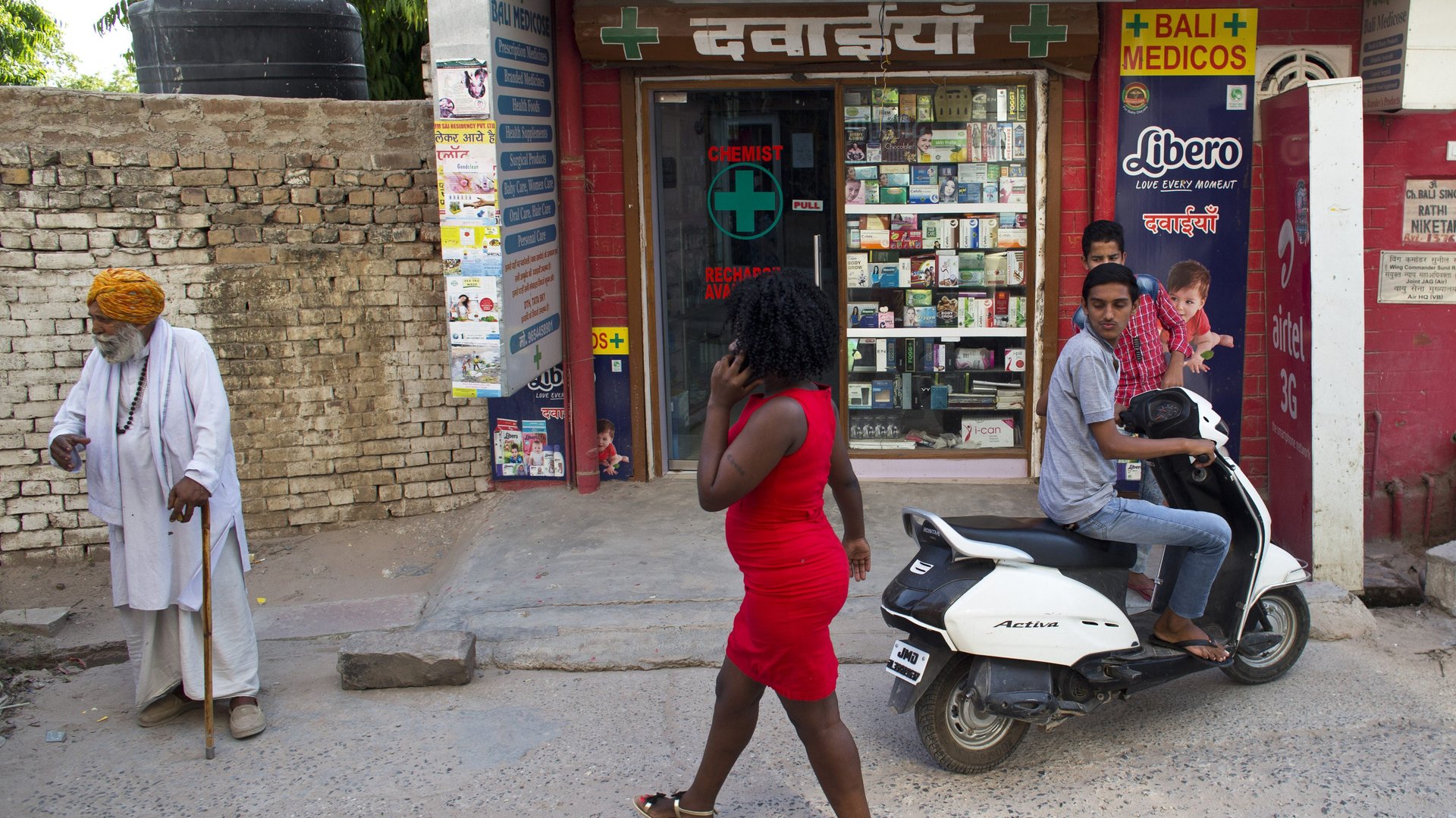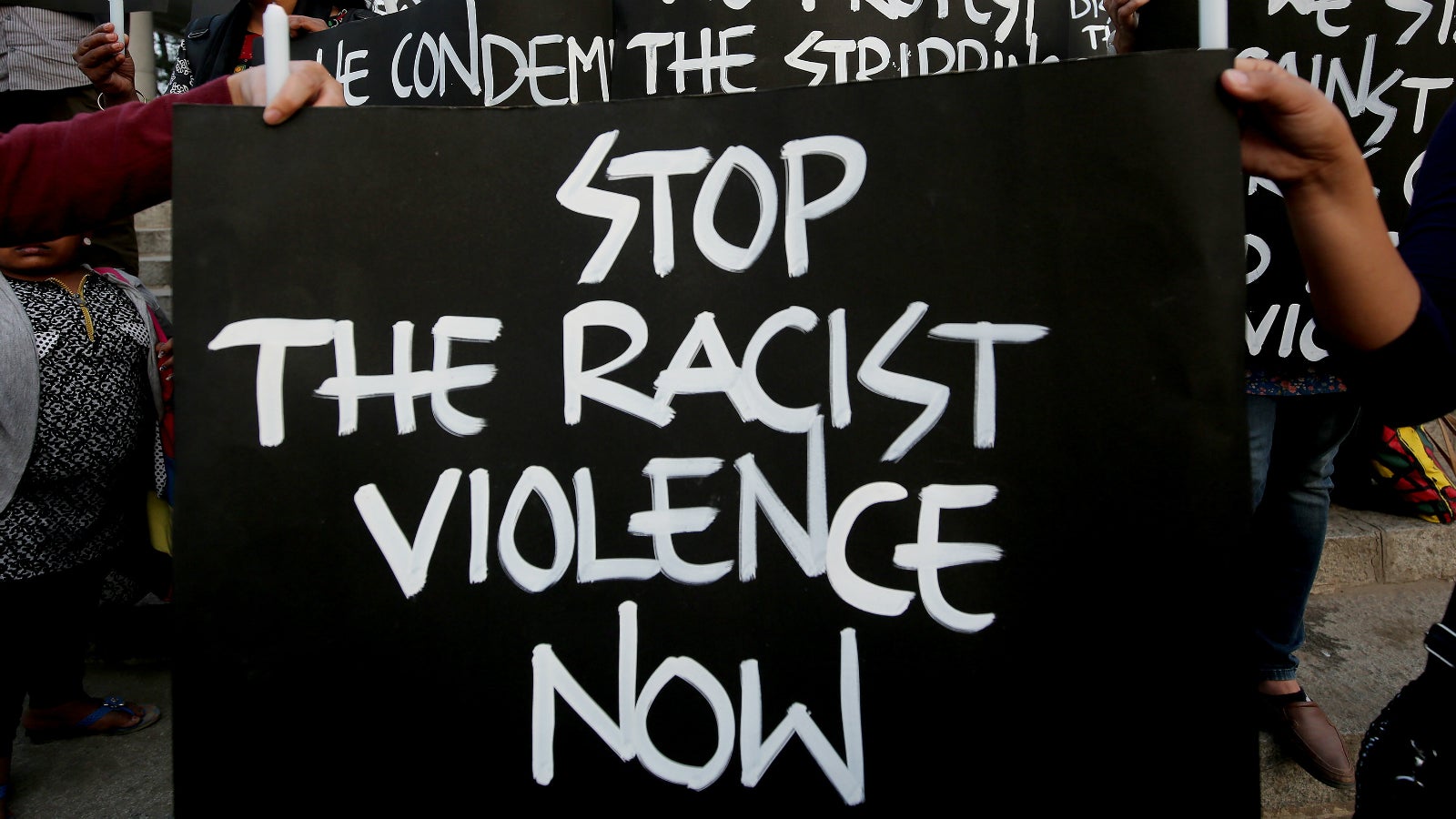India can stem the rising scourge of racism against Africans
India has seen a rise in incidents of racism by its citizens against foreign nationals, especially Africans, in recent times. As a country with the largest diaspora communities, India needs to be particularly worried by this development.


India has seen a rise in incidents of racism by its citizens against foreign nationals, especially Africans, in recent times. As a country with the largest diaspora communities, India needs to be particularly worried by this development.
The country is home to a significant migrant population, most of it from the neighboring countries in South Asia. In 2010, there were 5.4 million foreign-born people in the country. The number of Africans in India is estimated to be about 40 000, of whom 25 000 are students.Yet, these small numbers are significant for the growing relations between India and Africa.
The Indian government has been announcing scholarships, grants and credit lines for Africa against the backdrop of the India-Africa Forum summits. In spite of these efforts to woo Africa, the government is in denial about racist attacks against Africans in India. In the wake of the recent attacks on Africans in India, the official denial that such acts are racist hampers efforts to tackle the problem. This, plus the fact that the perpetrators are hardly ever brought to book is a major cause for their recurrence.
India and Africa matter to each other
The government positioning stands in contrast to the historic relations between India and Africa founded on the tenets of anti-racism and anti-colonialism. Moreover, the government’s stand risks jeopardizing India’s growing relations with Africa in the fields of trade, technology and human resource development. India’s trade with Africa has grown from $1 billion in 1990-1991 to $71 billion in 2014-2015.
Despite this, stereotyping of Africa is common. African countries are often insidiously used as a metaphor for under-development. And Africans in India are associated with labels such as “debased” as well as “drug-peddling and prostitution”. These stereotypes are constructs of economic hierarchy coloured in racist hues.
Crime and prejudice in India
Racial violence has its parallels in other forms of violence in India. The prejudice runs across multiple channels from caste, region, religion to gender. Sporadic violence against “vulnerable” groups – including black people, white women, Indian women, minorities and the lower castes – is commonplace. The foreigner thus gets caught up in the social hierarchies of the country.
This was apparent in the mob attack against African students in the Delhi metro in 2014 by a crowd chanting nationalist slogans. The ostensible reason for the attack was that the African males had misbehaved towards an Indian woman, even though the police have no register of such a complaint.
The recent attack on a young Tanzanian woman student in Bangalore allegedly happened under the watch of a police constable who did nothing to stop it. She was stripped by a mob that sought justice for a road accident in which a Sudanese national’s car ran over a local woman.
Government response
The Indian government is largely in denial when it comes to racism. Refusing to acknowledge the racism and projecting the incidents as simply cases of urban violence means they are unlikely to prick at the conscience of Indian society, as they should.
The government was recently spurred into action but only after African diplomats reacted to the murder of MK Oliver, a Congolese student in May 2016. The Indian Minister of State (External Affairs) personally met members of the African communities and strong police action against the culprits was assured.
And the ministry of External Affairs and the ministry of Home Affairs have launched a series of racism sensitization programs in neighborhoods where most African citizens reside.
This is a step forward, but more needs to be done. Racism and racist violence are not limited to Indians who live in close proximity to African citizens.
What needs to be done
India’s ministry of External Affairs and the ministry of Home Affairs need to make a concerted effort to sensitize the police and the public about how racism contradicts India’s past and present ideals.
One way to do that is to inform Indians about how Indians and people of Indian origin are able to live peacefully and prosper in Africa and other parts of the world.
In addition, the Ministry of External Affairs should have a department dedicated to addressing breaches of human rights against foreigners in the country. And appropriate and corrective laws should be passed and enforced to combat acts of racism.
NGOS also have a role to play. Those working in human rights need to speak out against discrimination and racist violence and provide legal support to the victims. They could also lead community awareness programmes against racism, drawing on experiences from other countries.

As most Africans in India are students, the ministry of Human Resources needs to drive campaigns against racism on campuses. Educational institutions in India should be told about the importance of scholarship programs for Africans. Efforts should also be made to educate Indian students about Africa.
African students should be given appropriate lodging and boarding facilities in and around the campus or in the vicinity of other students’ residences instead of being confined to a few “African” neighborhoods. Such geographical demarcations increase the risk of alienation and stigmatization.
States must step in
There is a role for governments too. Unlike colonial relations of exploitation, the tenets of South-South Co-operation emphasize mutual respect.
Indian ministries and the media should not restrict themselves to running headlines on the millions of dollars India allocates to Africa.
The fact that Africa contributes to growing the Indian economy should also be given attention. For example, lines of credit benefit India by creating markets for private and public Indian companies. This is because they come with the condition that 75% of goods and services are sourced from India.
The private sector, given its considerable interests in Africa, also needs to take a lead in showing the continent’s worth to India. Such efforts are important in dismantling fallacious notions of hierarchy and superiority, which the booming Indian economy seems to bring.
And African countries must push for equality as the building block of co-operation. Anti-racism should be reiterated at the commencement of the India-Africa summits and should be set to stone in the form of appropriate treaties.
Pooja Jain-Grégoire, Researcher and Course Lecturer International Development Co-operation, École des Hautes Études en sciences sociales (EHESS) – PSL
This article was originally published on The Conversation. Read the original article.